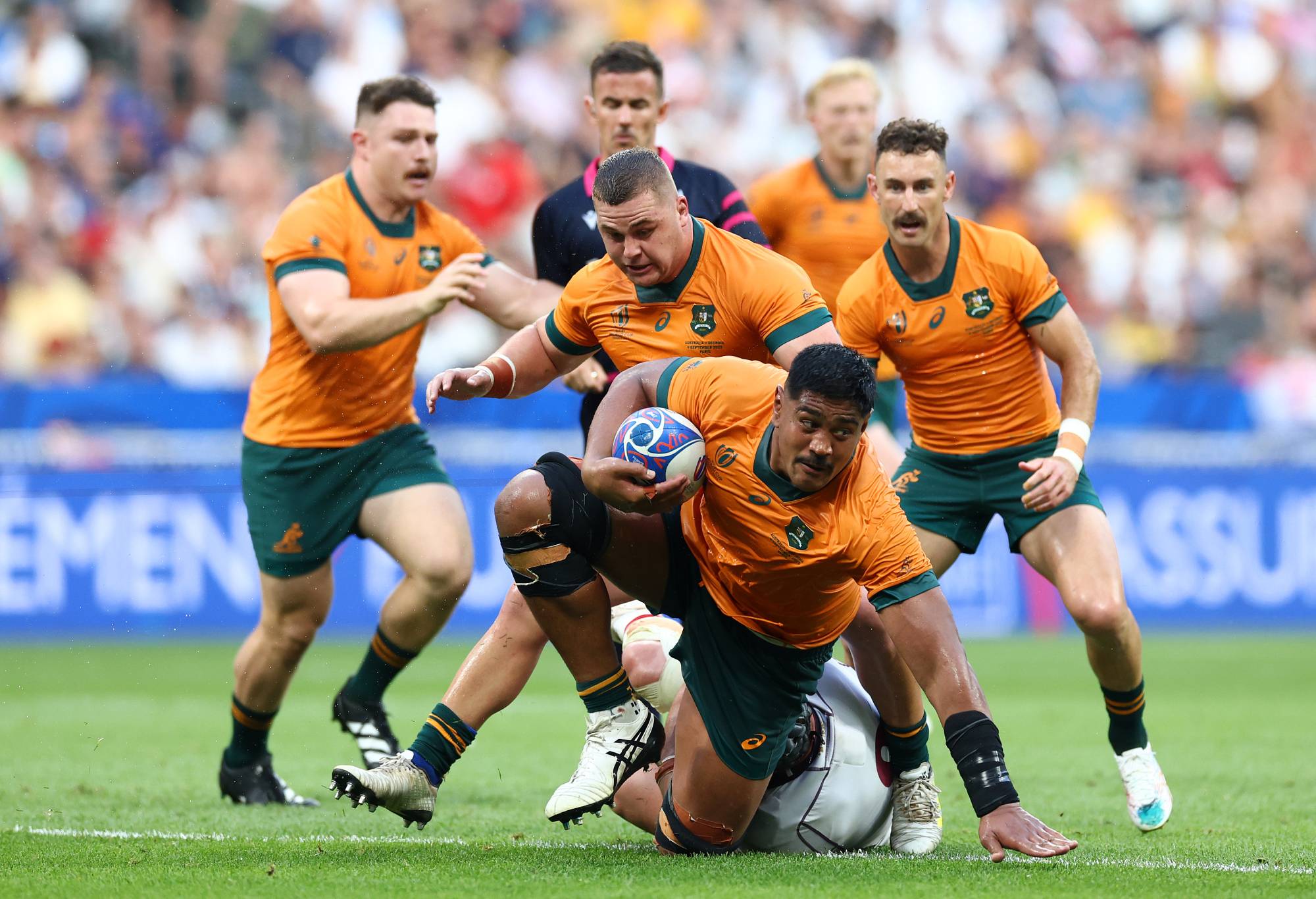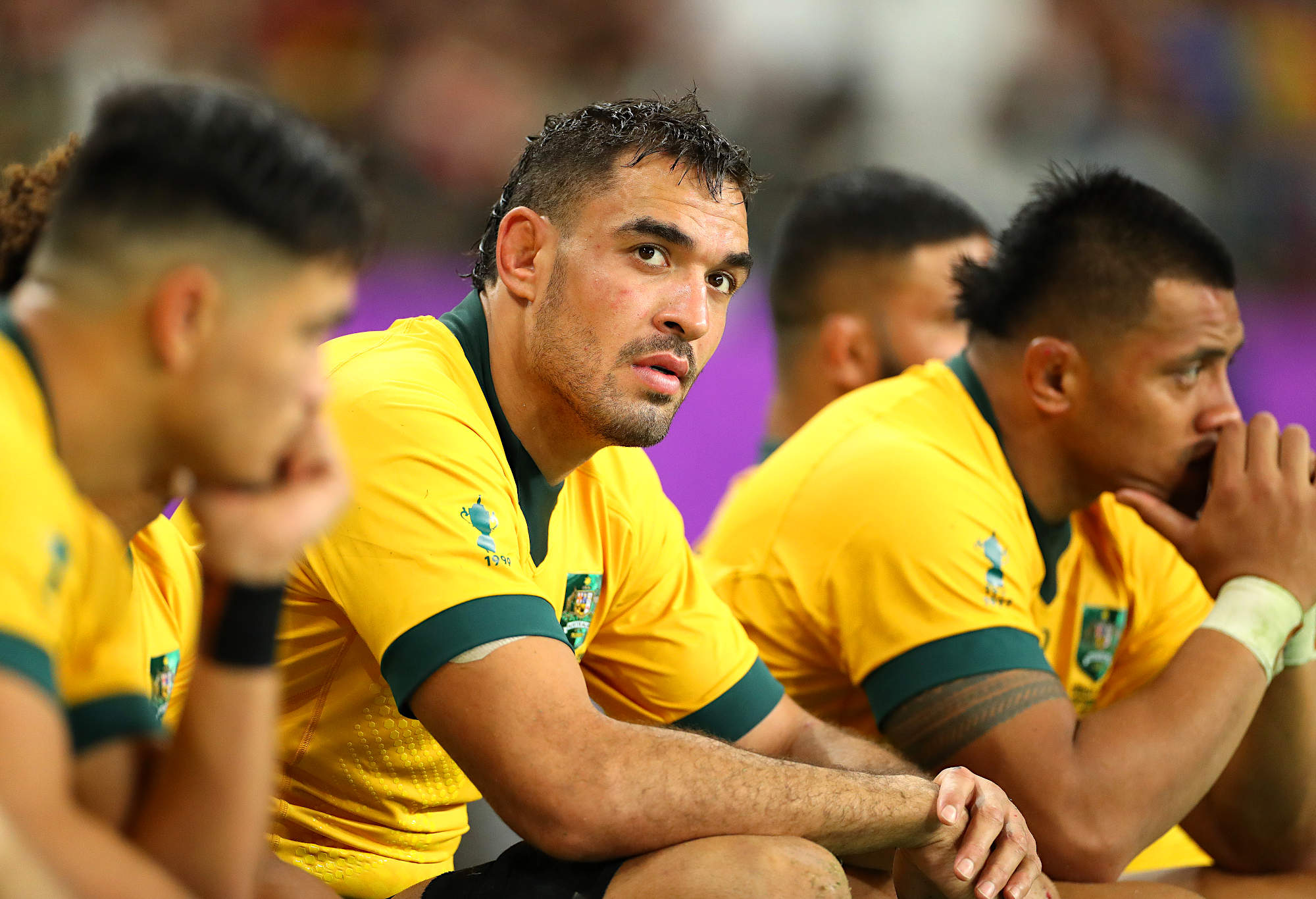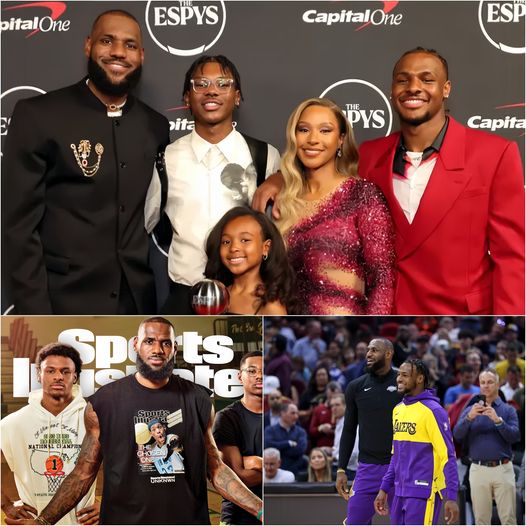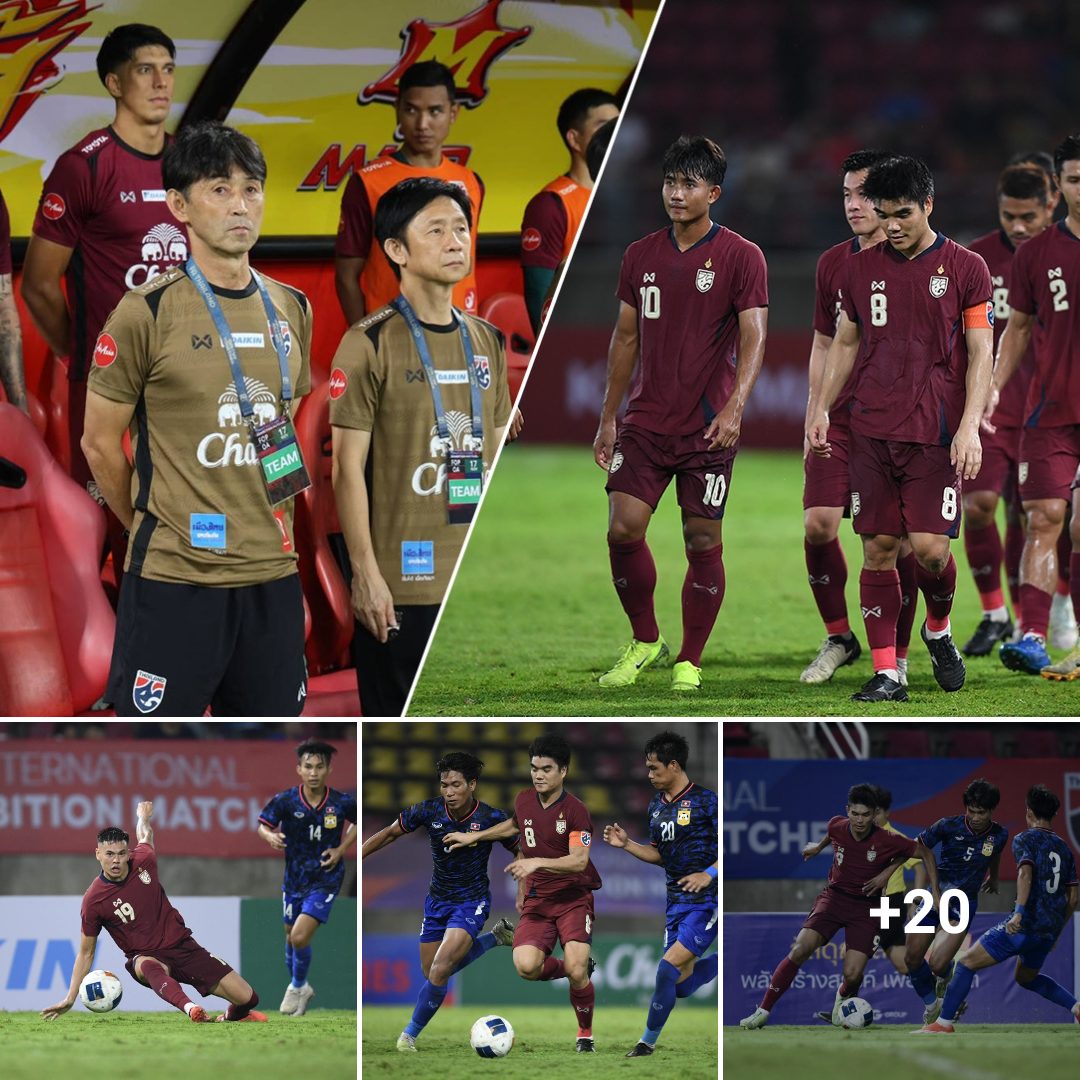The debate surrounding the ‘Giteau Law’ – the Wallabies’ overseas selection policy – is constantly raging in Australia, especially when results are poor.
Calls often erupt for players to be recalled after having gone overseas, with their stocks magically raised after having departed Australian shores.
This idea is a band-aid fix with a much more complicated answer because it undervalues how elite programs work.
It underestimates the detail, load management and cohesion required, as well as the years of continuous implementation it would take for it to yield results.
People often use our southern hemisphere brethren, South Africa and Argentina, as examples of the success of overseas selection.
While both sides have been increasingly successful, there are clear differences to Australia which make their overseas selection policy not only a necessity but successful in ways it wouldn’t be for Australia before key events in coming years.
For South Africa, many overseas picks are far more experienced than most of the Australian choices abroad, look at Handre Pollard, Willie Le Roux, Franco Mostert, and Pieter Steph du Toit – all have more than 75 Test caps.

Then there are the stars: Cheslin Kolbe, RG Snyman, Jasper Wiese, Kwagga Smith, who have fewer than 50 caps but more than 30.
For Argentina, they don’t have a top-tier domestic club competition to safeguard, and their country is currently in an economic crisis.
Their only choice is to pick players from abroad who are now standout players for their clubs.
Julian Montoya, Marcos Kremer, Tomas Lavanini, Pablo Matera, are vastly experienced, all boasting more than 75 caps each.
They too have inexperienced stars like Mateo Carreras, Juan Martin Gonzalez, Santiago Chocobares, Lucio Cinti, and Juan Cruz Mallia, all who have between 26 and 37 caps but who add real impact for club and country.
The talent amongst these players is unquestionable, however successive coaches have had the foresight to have them mentored in a timely manner.
Finally, it must be remembered that before this year, New Zealand had an iron grip on The Rugby Championship with Argentina as regular wooden spoon holders.
Meanwhile, the Springboks struggled in successive campaigns before their World Cup win in 2019.
The success of their two policies did not flourish overnight.
This is all to say, if the Wallabies are to move to a carte blanche overseas selection policy, it would have to be a long-term, concerted, cohesive plan coming from the top.
Currently, the opposite mindset seems to be in play at Rugby Australia, so the Giteau Law model we have currently must be used only to capture the very best Wallabies from around the world.
There are a couple of signs which universally point to good form: regularly starting for one’s club and having impact in the player’s designated parts of the game.
There are also variables which should be considered: how injury-prone they are, when did they last play for the Wallabies and at what level is their competition.
Furthermore, their direct competitors are an important gauge for the Test arena.
Finally, and perhaps most importantly, is considering the gaps in the Wallabies squad which cannot be filled by domestic talent, and if the overseas player is guaranteed to perform better than the domestic alternative?

This last requisite may be hard to define and in turn answer definitively, but it would appear the following two players tick all these boxes.
Scott Sio, loosehead prop
Like a fine wine, the 33-year-old prop playing for Exeter in the English Premiership is only getting better with age.
The 69-capped Wallaby re-signed with the English club in May which will see him stay at Sandy Park until 2026, with the club full of praise for the veteran.
“He’s become a key player for us, both in the way he plays – our scrum and line-out have become such key areas and a real strength this season – but also in the level of strength and leadership he brings, particularly in the way he works with our young guys,” said Exeter’s director of rugby, Rob Baxter.
“He’s training and playing like a young man. He’s got a lot of energy around the place and those attributes are invaluable.”
Sio falls into the category of experienced Test payers, who week-in, week-out, competes with some of England’s best scrummagers.
He also gets exposure against Ireland, Scotland, Wales, Italy and South Africa’s best via the European Championship Cup.
Sio is the kind of experienced operator Wallabies coach Joe Schmidt can bring in and trust he’ll pick up the gameplan quickly.
His ability to nurture youngsters Angus Bell and Isaac Aedo Kailea would be a bonus.
While James Slipper doesn’t lack experience, Sio has something different to offer.
Sio is scrummaging well whereas the ACT Brumbies’ scrum was going backwards throughout the season, with Slipper struggling to steady the ship for the Wallabies as well.
Slipper is not done, but he’d benefit from a rest and a decent pre-season, to get himself right for the British and Irish Lions next year.

Apart from the grizzly veteran and the two young guns, the stocks are precariously thin.
Tom Roberston is short on game time and match fitness, and Alex Hodgman doesn’t scream impact at Test level.
Test rookies like Blake Schoupp, Tom Lambert, and Harry Hoopert are all short on fitness and game time.
Bell is an impact player, and Kailea is taking to the Test arena well but there must be another genuine Test-level loosehead prop amongst the Wallaby ranks.
Sio would not only fill the gap, but he would also enhance the Wallaby scrum.
If you watched Exter’s game against Bristol at the weekend, then you’d know the 33-year-old is full of running as well.
Will Skelton, tighthead lock
Simply put, no one even comes close to Skelton’s size, and at Test level size matters.
Listed at 145 kilograms, he’s at least 20 kilos heavier than any Wallaby lock that has played this year.
He’d also be just the second two-metre-plus lock in the Wallabies set-up.
Yes, bigger is not always better, but in a direct gameplan like Schmidt’s, it would count for a lot.
His heft and frame gives him a unique ability to anchor the Wallaby scrum and augment the Wallabies’ improving maul.
His s𝓀𝒾𝓁𝓁set can also weaponise the Wallabies’ maul, because he has the power to peel off two or three opposition players, weakening the opponent’s maul.
He also has the grunt to blow-up mauls in defence, busting seams, swimming through and smothering the ball carriers.
The 30-capped Wallaby falls into the star talent category, offering a distinctive frame no other Wallabies-eligible player can.
While his Test caps are not as many as others, he has over 231 club games for top sides in the French Top 14, English Premiership, and Super Rugby.

Angus Blyth and Josh Canham didn’t meet expectations in their debut seasons and only Jeremy Williams has kicked on alongside regular starters Nick Frost and Lukhan Salakaia-Loto.
Skelton’s inclusion would offer the team another big ball runner as well as offer Schmidt flexibility in his backrow options, should he wish to play Williams or LSL at No.6.
Any squad including Skelton beefs the pack up considerably.
The key test for any overseas inclusion should be: does the player offset a deficiency in the current playing squad which cannot be provided by a domestic player, and if so, are they the best overseas player in their position?
Sio and Skelton most certainly answer this question in the affirmative.
Both are experienced operators who add s𝓀𝒾𝓁𝓁s and assets no one inside or outside Australia currently can.
Of course, there will be calls for players long departed, like Richie Arnold, Rob Simmon, Quade Cooper, and Jack Maddocks, to name a few.
There will be similar calls for those who have recently departed Aussie shores.
The issue with the first list is typically, their form is too difficult to quantify and how it translates to the Test arena.
The issue with the second list is few held down regular Wallaby starting roles when they were onshore.
Arguments could be made for a handful of players from both lists, but the live question remains: would the OS player’s inclusion not only offset a deficiency in the current playing squad but surpass the talent of the domestic player outright?
An inability to say an outright yes should give the domestic talent preference.
Of course, this is all based on the understanding that Schmidt wants to keep selection as domestic as possible – he’s the coach, end of discussion.
However, had Rugby Australia made it clear from the outset they wanted to foster a culture of global selection, then the discussion would be entirely different.

As stated above, it would be a massive job, one perhaps too big for Rugby Australia to handle ahead of the key events in coming years.
It would include but would not be limited to vetting overseas players for their form, fitness, and desire to play for the Wallabies combined with building relations with clubs across the world to ensure the release of their players in goodwill.
Whether you are pro-overseas selection or against it, there’s no doubt the Wallabies could use reinforcements at loosehead prop and at tighthead lock.
Whilst there are other positions which have been far from world class, the suitable options abroad are slim, and Schmidt and his Wallabies have shown enough to give the Spring tour a real shake.
The inclusion of Skelton and Sio would aid their efforts, not only plugging gaps in their roster but also taking the pack to a new level.
The pair, should they be called upon, can most definitely help the Wallabies against the Lions next year, and with that in mind, learning Schmidt’s gameplan now is crucial.
The discussions surrounding overseas selection will continue, and while there’s sense in both the extremes, it all comes down to the detail of implementation.
For the Wallabies and Schmidt, their only focus must be on what benefits them in the next couple months to prepare them for the Lions next year.





